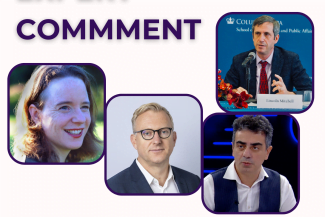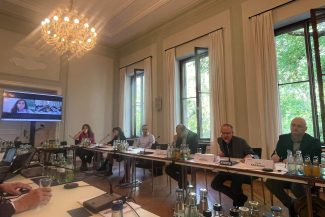The Georgian Institute of Politics organized a virtual public discussion on April 10 titled “Transparency as a Tool Against Democracy: The Case of Georgia’s ‘Foreign Agents’ Law.” The discussion mainly focused on Georgia’s domestic politics and the reintroduction of the “foreign agents” law by the ruling Georgian Dream Party. This law is previously rejected by Georgia’s civil society.
This regulation would strongly limit independent civil society and media organizations, affecting Georgia’s political landscape just before October’s parliamentary elections. The narrative behind the proposed bill also hints at its intentions stacked against NGOs. According to the ruling party, the lack of transparency among civil society actors poses one of “the most important challenges for state security.”
The bill is considered despite solid public and international reactions. According to the joint statement of MEPs representing diverse political parties, “The law on “transparency of foreign influence” is incompatible with EU values and democratic principles and runs against Georgia’s ambitions for EU membership.
The discussion focused on the following questions:
- What does the reintroduction of this much-contested bill say about Georgia’s political landscape? What does it mean for independent media?
- The law is reintroduced in the name of “Europeanization,” despite clear denunciations by the EU institutions. What are the implications of this initiative by the ruling party for Georgia’s EU integration?
- The bill on “foreign agents” presents a case in point for measuring Western response. What instruments do international partners have to support Georgian democracy in the current context? What are its limitations?
- How does the GD’s law on “foreign agents” compare to legislation in other countries that claim to be created to enhance the transparency of civil society funding?
The session was expertly moderated by Renata Skardziute-Kereselidze, deputy director of the Georgian Institute of Politics, who provided insightful introductory remarks. The agenda featured a panel of distinguished speakers, each bringing their unique expertise to the discussion: Sonja Schiffers, the Heinrich Boell Foundation South Caucasus, Hans Gutbrod, Transparify, Ilia State University, Nino Gelashvili from Radio Free Europe / Radio Liberty, and Thomas de Waal, Carnegie Europe.






